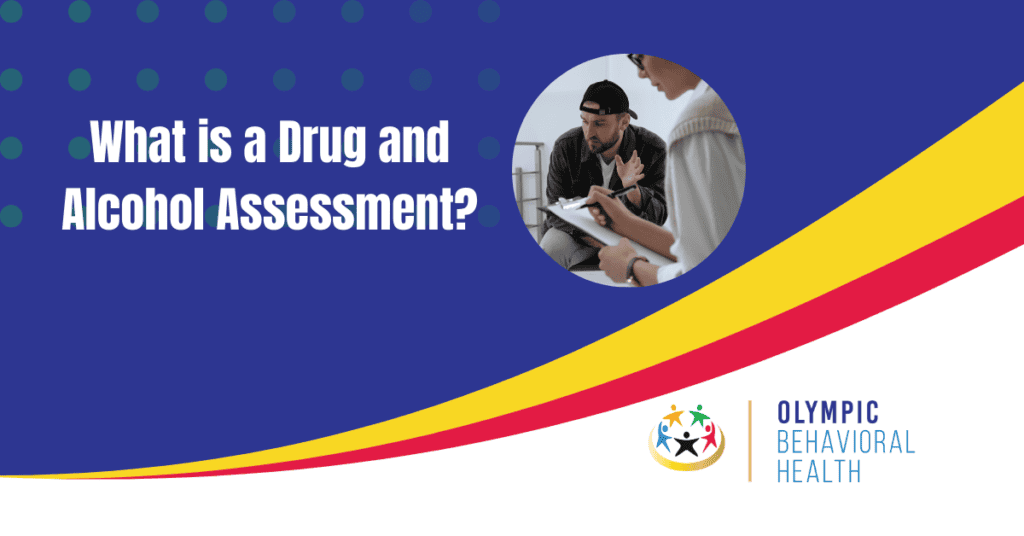A drug and alcohol assessment is a comprehensive evaluation conducted by a licensed professional to evaluate an individual’s alcohol or drug use and related behavior. Some legal situations, such as DUI (Driving Under the Influence) charges, probation, court-ordered treatment programs, and child custody cases, require an evaluation.
During the evaluation, the licensed professional will gather information about the individual’s substance use history, family history, physical and mental health, and any legal or employment issues arising from their drug or alcohol use. The evaluation may involve standardized tests, interviews, and observations.
The ultimate goal of a drug and alcohol evaluation is to determine the severity of an individual’s substance use disorder and recommend appropriate treatment options. Based on the results, the licensed professional may recommend treatment programs such as detox, inpatient or outpatient treatment, therapy, or counseling. The evaluation is crucial to addressing substance abuse and helping individuals get the necessary support and treatment to overcome their addiction.
How Does a Drug and Alcohol Assessment Work? resources
A drug and alcohol evaluation typically involves a series of assessments and interviews conducted by a licensed professional, such as a substance abuse counselor, psychologist, or psychiatrist. They gather information about an individual’s substance use and related behavior to help determine the severity of their addiction and identify the most appropriate treatment options.
Here is a general outline of how a drug and alcohol evaluation may work:
Intake Assessment: The first step in a drug and alcohol evaluation is an intake assessment conducted over the phone or in person. During the intake assessment, medical professionals ask basic questions about substance use, medical history, and any legal or employment issues that have arisen due to their drug or alcohol use.
Initial Interview: After the intake assessment, the individual will typically meet with a licensed professional for an initial interview. The interview may involve questions about the individual’s substance use history, family history, physical and mental health, and any legal or employment issues related to their addiction.
Standardized Testing: The licensed professional may administer standardized tests to assess the individual’s substance use and related behavior. These tests may include urine tests, blood tests, or psychological tests.
Follow-Up Interviews: Depending on the initial interview and standardized testing results, the licensed professional may conduct follow-up interviews to gather more information about the individual’s substance use and related behavior.
Diagnosis and Treatment Recommendations: After completing all the assessments and interviews, the licensed professional will use the information gathered to diagnose and recommend appropriate treatment options. The treatment options may include detox, inpatient or outpatient treatment, therapy, or counseling.
The questions asked during a drug and alcohol evaluation will vary depending on the professional conducting the assessment and the purpose. The licensed professional conducting the review will typically ask the questions during the interviews and assessments.
The length of a drug and alcohol evaluation can vary depending on the complexity of the individual’s substance use and related behavior. On average, a drug and alcohol evaluation can take one to three hours.
What Types of Interviews? (reword)
Several types of interviews are used during a drug and alcohol evaluation to gather information about an individual’s substance use and related behavior.
Here are some examples of interview techniques used during a drug and alcohol evaluation:
- Structured Interview: A structured interview involves a set of pre-determined questions in a specific order. This type of interview is often used to gather detailed information about an individual’s substance use, mental health, and other related issues.
- Motivational Interviewing: Motivational interviewing is a client-centered approach that involves exploring an individual’s ambivalence about change, identifying their values and goals, and helping them develop their reasons for making changes.
- Cognitive-Behavioral Therapy (CBT) Interview: In a drug and alcohol assessment, a licensed professional may use CBT techniques during an interview to explore an individual’s thought patterns and behaviors related to their substance use. For example, the professional may use CBT techniques to help clients identify and challenge negative thoughts and beliefs contributing to their addiction. The professional may also use CBT techniques to help the individual develop coping skills and strategies to avoid relapse.
- Family Interview: A family interview involves gathering information about substance use and related behavior from an individual’s family members. This type of interview can provide valuable insights into an individual’s family dynamics and social support system.
- Diagnostic Interview: A diagnostic interview gathers information about an individual’s symptoms and behaviors related to a particular mental health disorder, such as substance use disorder. The data collected during a diagnostic interview determines if an individual meets the diagnostic criteria for a particular disorder.
These are just a few examples of the interview styles, techniques, and modalities used during a drug and alcohol evaluation. The specific interviews conducted during an assessment will vary depending on the professional conducting the evaluation and the purpose of the assessment. The interviews are designed to gather information about an individual’s substance use and related behavior to help determine the severity of their addiction and identify the most appropriate treatment options.

What Tests are given in a Drug and Alcohol Assessment?
Several standardized tests may be used in a drug and alcohol evaluation to assess an individual’s substance use and related behavior. Here are some examples of standardized tests that may be used during an assessment:
- Urine Drug Test: A urine drug test detects recent drug use. The test can detect the presence of alcohol, prescription drugs, and illegal drugs in the individual’s system.
- Blood Alcohol Test: A blood alcohol test measures the amount of alcohol in an individual’s system during the evaluation.
- Breathalyzer Test: A breathalyzer test measures an individual’s blood alcohol content (BAC) by analyzing their breath.
- Addiction Severity Index (ASI): The Addiction Severity Index is a structured interview that assesses an individual’s substance use and related problems, medical status, employment and support, legal status, family/social relationships, and psychiatric status.
- Drug Abuse Screening Test (DAST): The Drug Abuse Screening Test is a self-report screening tool used to identify individuals who may have a drug abuse problem.
- Alcohol Use Disorders Identification Test (AUDIT): The Alcohol Use Disorders Identification Test is a self-report screening tool used to identify individuals who may have an alcohol use disorder.
- Brief Addiction Monitor (BAM): The Brief Addiction Monitor is a self-report questionnaire that assesses an individual’s substance use and related problems and readiness for change.
- Psychological tests: A licensed professional may use psychological tests to evaluate an individual’s mental health and any underlying issues contributing to substance use.
- Interviews: A licensed professional will conduct interviews with the individual to gather information about their substance use, personal and family history, mental health, and any legal or employment issues that have arisen due to their drug or alcohol use.
The specific standardized tests used during a drug and alcohol evaluation may vary depending on the professional conducting the assessment and the purpose of the evaluation. The tests are designed to provide objective data to help assess an individual’s substance use and related behavior and to identify the most appropriate treatment options.
How do drug and alcohol intake assessments affect recovery outcomes?
Drug and alcohol intake assessments have a significant impact on recovery outcomes.
Here are some ways in which drug and alcohol intake assessments can affect recovery outcomes:
- Accurate Diagnosis: A comprehensive drug and alcohol intake assessment can help identify the type and severity of an individual’s substance use disorder. An accurate diagnosis is critical for developing an effective treatment plan addressing the individual’s needs.
- Individualized Treatment: Intake assessments help identify an individual’s strengths, needs, and goals, which can inform the development of a personalized treatment plan. A treatment plan that is tailored to an individual’s specific needs is more likely to be effective in promoting long-term recovery.
- Early Identification of Co-occurring Disorders: Intake assessments may help identify co-occurring mental health disorders contributing to an individual’s substance use. Treating these co-occurring disorders along with the addiction can improve treatment outcomes and reduce the risk of relapse.
- Improved Engagement and Motivation: Intake assessments can help establish a trusting relationship between the individual and their treatment provider. This can improve engagement and motivation to participate in treatment and increase the likelihood of successful outcomes.
- Better Referral to Appropriate Services: Intake assessments can help identify an individual’s need for additional support services, such as medical or psychiatric care, family therapy, or vocational training. Referring an individual to appropriate services can improve treatment outcomes and support long-term recovery.
Drug and alcohol intake assessments are critical to the addiction treatment process. They can help identify an individual’s needs and develop a personalized treatment plan to improve recovery outcomes and support long-term success.
A drug and alcohol assessment is a comprehensive evaluation conducted by a licensed professional to assess an individual’s substance use and related behavior. It can lead to more accurate diagnoses, personalized treatment plans, and improved recovery outcomes. If you or a loved one are struggling with substance use, seek professional help to address the issue. Olympic Behavioral Health provides drug and alcohol assessments by licensed professionals. Contact us to learn more about scheduling a drug and alcohol assessment and take the first step towards a healthier, happier life.

Share This Post



